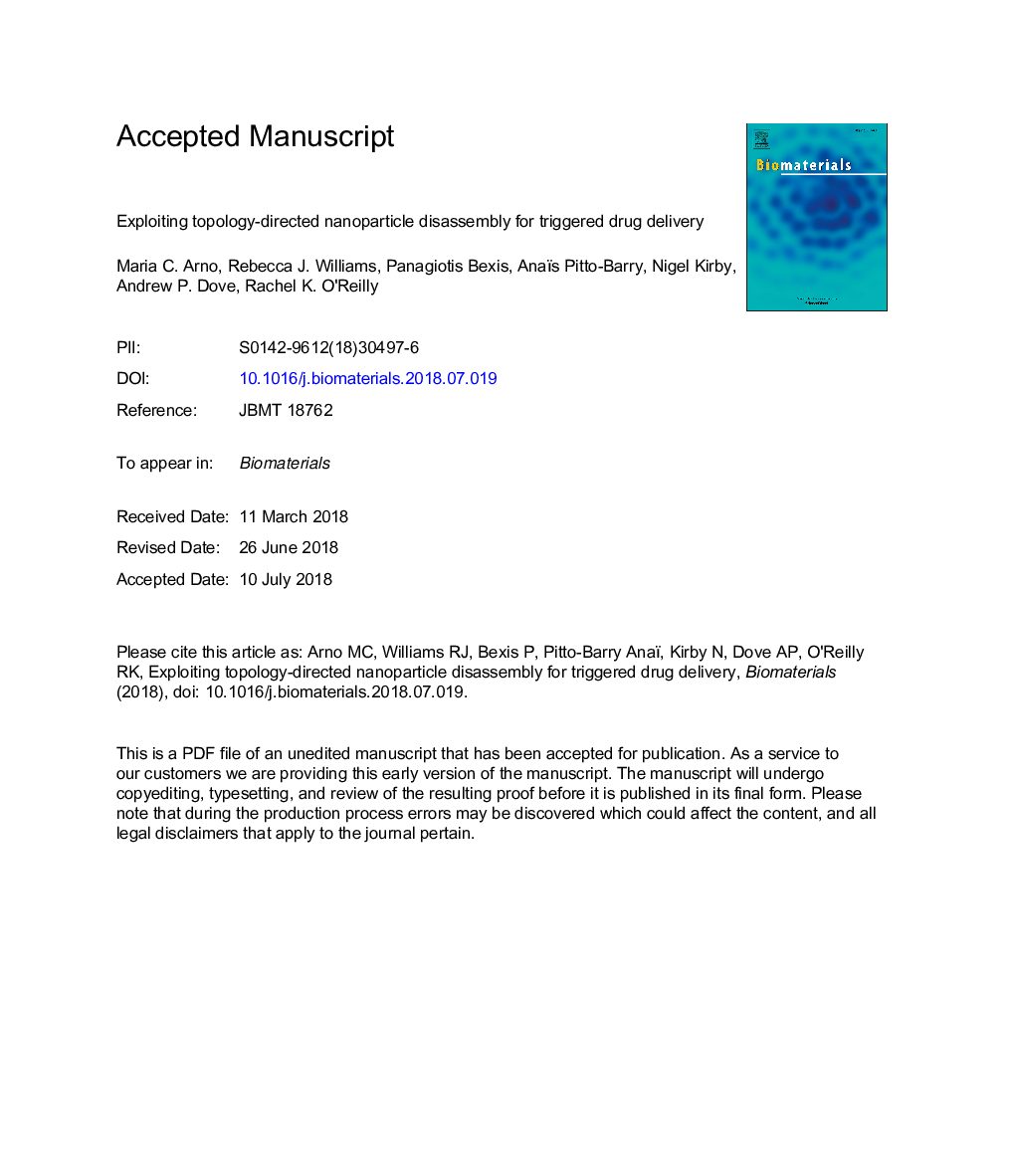| کد مقاله | کد نشریه | سال انتشار | مقاله انگلیسی | نسخه تمام متن |
|---|---|---|---|---|
| 6484340 | 1416087 | 2018 | 26 صفحه PDF | دانلود رایگان |
عنوان انگلیسی مقاله ISI
Exploiting topology-directed nanoparticle disassembly for triggered drug delivery
ترجمه فارسی عنوان
بهره برداری از جداسازی نانو ذرات جهت انتقال توپوگرافی برای تحریک دارو
دانلود مقاله + سفارش ترجمه
دانلود مقاله ISI انگلیسی
رایگان برای ایرانیان
کلمات کلیدی
کوپلیمرهای پیوندی، پلیمرهای سیکلی، لیزر دی سولفید، لینکدار استال، جداسازی ذرات کنترل شده با توپولوژی،
موضوعات مرتبط
مهندسی و علوم پایه
مهندسی شیمی
بیو مهندسی (مهندسی زیستی)
چکیده انگلیسی
The physical properties of cyclic and linear polymers are markedly different; however, there are few examples which exploit these differences in clinical applications. In this study, we demonstrate that self-assemblies comprised of cyclic-linear graft copolymers are significantly more stable than the equivalent linear-linear graft copolymer assemblies. This difference in stability can be exploited to allow for triggered disassembly by cleavage of just a single bond within the cyclic polymer backbone, via disulfide reduction, in the presence of intracellular levels of l-glutathione. This topological effect was exploited to demonstrate the first example of topology-controlled particle disassembly for the controlled release of an anti-cancer drug in vitro. This approach represents a markedly different strategy for controlled release from polymer nanoparticles and highlights for the first time that a change in polymer topology can be used as a trigger in the design of delivery vehicles. We propose such constructs, which demonstrate disassembly behavior upon a change in polymer topology, could find application in the targeted delivery of therapeutic agents.
ناشر
Database: Elsevier - ScienceDirect (ساینس دایرکت)
Journal: Biomaterials - Volume 180, October 2018, Pages 184-192
Journal: Biomaterials - Volume 180, October 2018, Pages 184-192
نویسندگان
Maria C. Arno, Rebecca J. Williams, Panagiotis Bexis, Anaïs Pitto-Barry, Nigel Kirby, Andrew P. Dove, Rachel K. O'Reilly,
